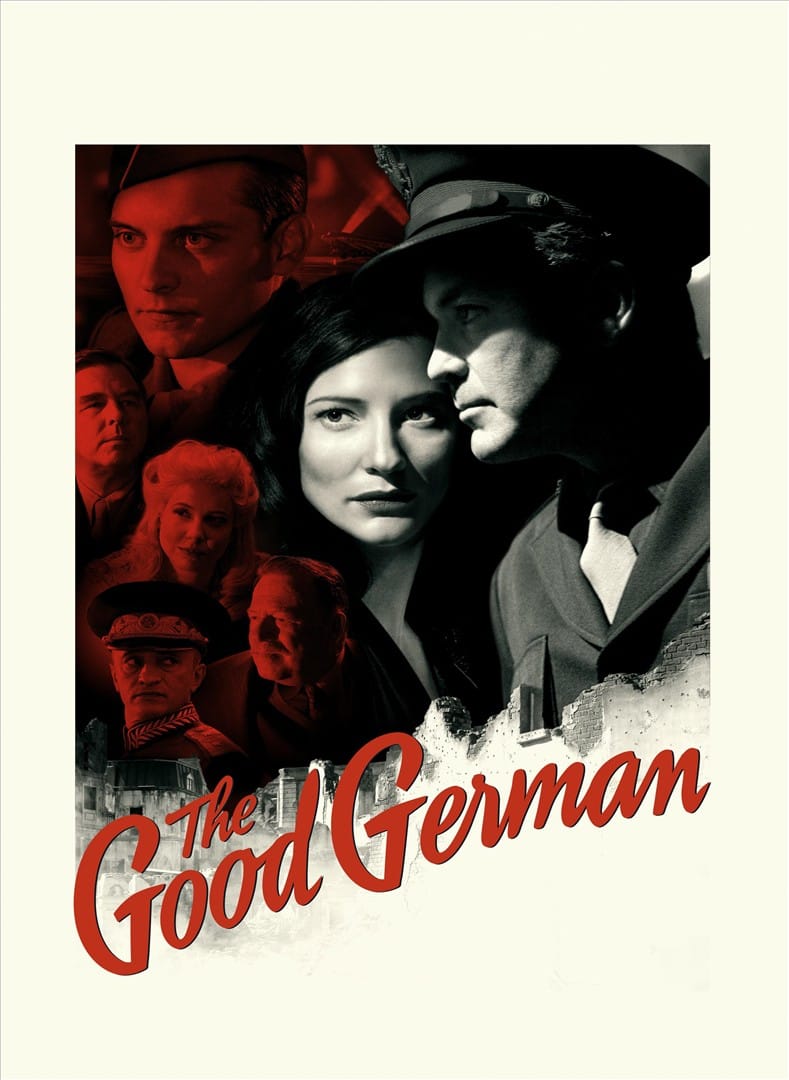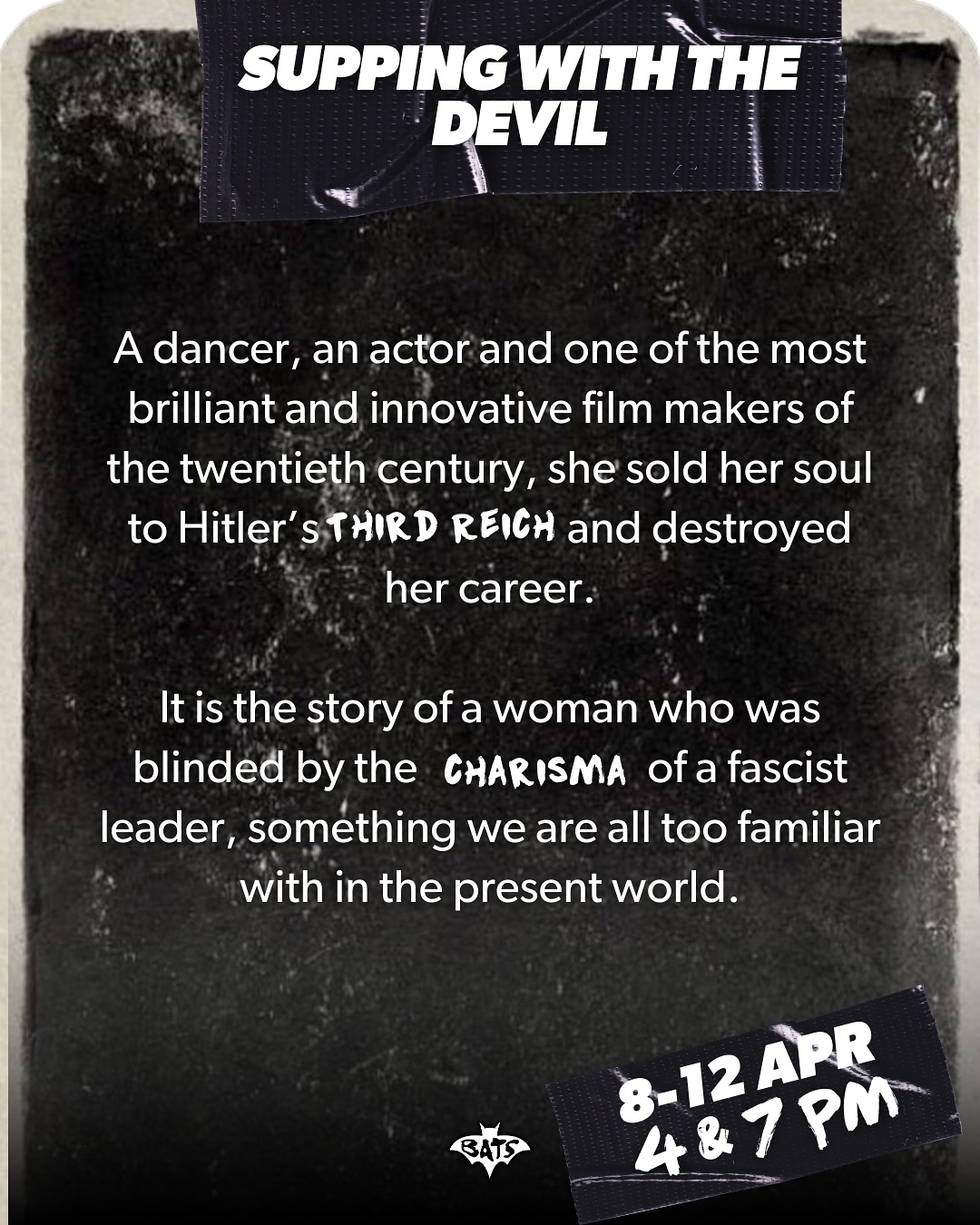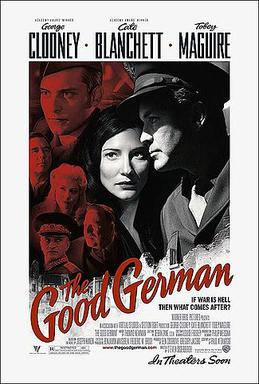The 'Good German' myth won't die
Why are liberals drawn to figures like Riefenstahl and Rommel?

Last week Wellington’s BATS Theatre played host to Jan Bolwell’s Supping with the Devil. Dramatising the life of Nazi filmmaker Leni Riefenstahl, it asks the question “what seduces an artist into supporting someone with a monstrous agenda?”
People have been asking this question about Riefenstahl for decades as if it is some sort of great mystery. Every revisionist take about Riefenstahl does its best to dance around the very simple answer to that question: “because she had no major ideological opposition to that agenda”
Hannah Molloy raises this fact in her review of its Dunedin season (“Poor blossom – I wondered if I was supposed to feel sorry for her”). Despite her reservations, Molloy concludes that the play is well-staged and thought-provoking. I was out of town for the Wellington season so cannot speak to how it approached this well-worn topic but I’m really uncomfortable with the way artists keep feeling the need to bring it up.

Another recent attempt to complicate Riefenstahl’s (very straightforward) legacy was Stephen Hopkins’ 2016 film Race. Incredibly, the pun-title isn’t the most misjudged thing about it. The film juxtaposes the success of black athlete Jesse Owens (Stephan James) at the 1936 Hitler Olympics1 with Riefenstahl’s (Carice van Houten) work to document those same Olympics in her Nazi propaganda film Olympia. Hopkins argues that, just as Owens had to overcome racism to win four gold-medals, Riefenstahl had to overcome the sexism of the Nazi film industry to succeed.
Leni Riefenstahl was a Nazi
Discussions of Riefenstahl tend to foreground her prowess as an artist. Even if a commenter is criticising her (and I understand that Bolwell’s play is critical), they can’t help but pay lip-service to her formal ability. She is called “a film-maker of extraordinary visual power”, “the greatest female filmmaker of the 20th century,” “an artist of unparalleled gifts,” etc etc. No stranger to providing cover for Nazis, Time magazine published a nauseating hagiography of Riefenstahl on her 102nd birthday. Richard Corliss bemoaned her post-holocaust career by lamenting “no one paid for political myopia with so long and rancorous an exile.”
Riefenstahl’s ‘exile’, however, was a fruitful one and she didn’t face any serious repercussions for making some of the most successful propaganda films for the Third Reich. In the decades after World War II, Riefenstahl continued to work as a photographer, most famously documenting the Nuba tribe of South Sudan. As Susan Sontag points out in her review of the photography, the fact that the bodies she fetishises are black isn’t doing much to kill the Nazi allegations:
In celebrating a society where the exhibition of physical skill and courage and the victory of the stronger man over the weaker have, at least as she sees it, become the unifying symbol of the communal culture—where success in fighting is the "main aspiration of a man's life"—Riefenstahl seems only to have modified the ideas of her Nazi films.
Although she was an unapologetic Nazi collaborator who facilitated the murder of Romani extras and allegedly cried when she learned of Hitler’s death, people still claim that Riefenstahl had no knowledge of the connection between her filmmaking and the Holocaust. This has been repeatedly disproven, including in a 2024 documentary based on archival footage. Her defenders are forced to walk a fine line between treating Riefenstahl simultaneously as a filmmaking genius and a naive idiot who couldn’t understand what was going on around her2.
‘Good Germans’
The term ‘Good German’ to refer to ordinary citizens of the Third Reich is intended to be ironic; of course genocide requires the complicity of ‘normal’ people. In his review of Daniel Jonah Goldhagen’s Hitler's Willing Executioners: Ordinary Germans and the Holocaust, Robert Gellately emphasises that many of the agents of the Holocaust were:
“ordinary Germans” who not only murdered Jews themselves, day in and day out for many months, but also aided and abetted in the murder of thousands of other Jews, the total number of whom will never be known for certain.”
If these ‘ordinary’ people need to be understood as complicit then enthuasistic propagandists like Riefenstahl must be even more complicit. The filmmaker is really just one example of this phenomenon. For example, dads around the world are willing to give Nazi tank commander Erwin Rommel a pass because he was so good at his job (he can’t have been that bad—he had nice things to say about the Māori Battalion). Historians even have a word for this: ‘the Rommel Myth’. The idea that Rommel was some sort of apolitical man of honour gave the Germans and Americans something they could agree on after the war.3
To accept that people like Riefenstahl and Rommel were enthusiastic Nazis would be to implicate a much larger group of people. It is now widely accepted that post-war denazification was relatively tokenistic and a number of Nazis went onto successful careers in the United States and West Germany. Anyone who has seen the way Germany treats anti-genocide protestors in the 21st Century will understand how little it has contended with its own history.

Implications beyond Germany
Notably, none of the aforemented apologia for Riefenstahl and Rommel comes from German sources. In fact, there seems to be a compulsion among English-speakers to believe that these figures were more than just Nazi collaborators.
For both Bolwell’s play and Hopkins’ film, the fact that Riefenstahl was a woman working in a male-dominated industry is emphasised. While I’m sure that she faced sexism in the Nazi film industry, this is completely insufficient to explain her enduring appeal. There were plenty of women who made excellent films in the first half of the 20th Century and earlier. The fact that Riefenstahl gets this treatment and someone like Dorothy Arzner doesn’t is precisely because she was a Nazi. Liberals are attracted to the idea of a girlboss fascist (see also 2019’s Bombshell) because it plays into their meritocratic ideas that someone can be so good at their job that it outweighs the morality of that job.
This was an especially important idea in the post-war period because there was more overlap between American and Nazi ideology than many Cold Warriors would like to admit. America’s Cold War activities (with genuine Nazi involvement via Operation Paperclip) represented a continuation of the genocidal anti-Communism of the Third Reich. The Nuremberg Trials may have rid the world of a few of the worst criminals, but to acknowledge how widespread German culpability was would be to throw the baby out with the bathwater.
Crucially, this idea has continued to this day. American history is just a series of rehabilitations of yesterday’s genocidiers. Since Trump’s first term, we have increasingly seen a liberal forgiveness of the perpetrators of the Iraq War. You can expect media figures who have provided coverage for the Gaza Genocide to adopt similar strategies as Riefenstahl if they are ever threatened with repercussions.
Liberals love Riefenstahl because there is nothing more relateable to them than a well-meaning person being forced to do something evil, doing it really well and facing no repercussions.
If you’ve already subscribed, care this with someone you think needs to read it
Fun fact: these Olympics are also the reason for Timaru Boys High School’s infamous ‘Hitler Tree’ ↩
Such an infantilising approach makes it difficult to mount a feminist defence of Riefenstahl ↩
Other egregious examples can be seen in films like The Sound of Music, Valkyrie and Jojo Rabbit ↩



